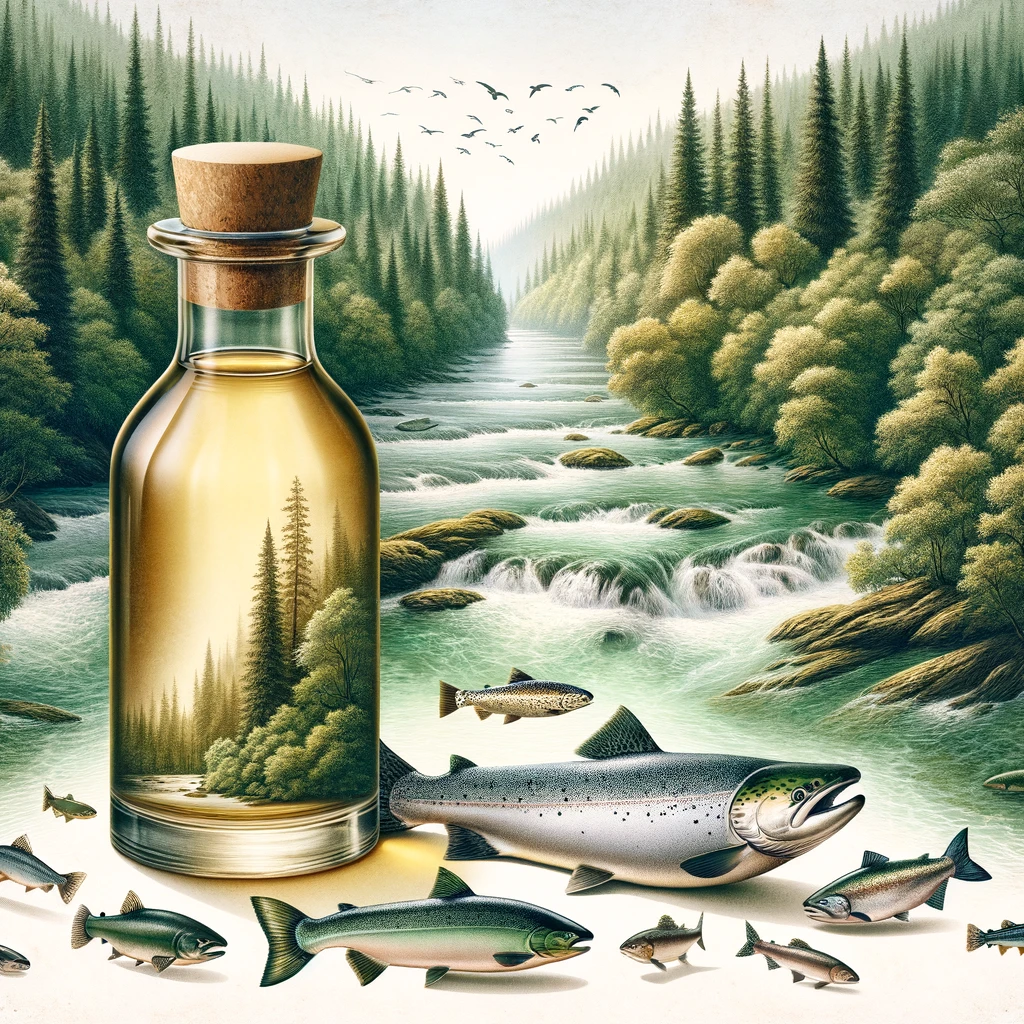
In the realm of nutritional supplements, salmon oil holds a revered place, celebrated for its rich content of omega-3 fatty acids, essential for heart health, brain function, and systemic inflammation reduction. Extracted not from the liver but the skin of the salmon, this oil carries a distinct set of nutritional benefits, including a natural richness in Vitamin D. However, the journey from the cold, clear waters inhabited by salmon to the supplement aisle is fraught with environmental and processing challenges that dilute its nutritional promise and raise concerns about sustainability.
Sustainable Fishing and Farming Practices
Salmon, a fish integral to both ecosystems and diets worldwide, is subject to various methods of harvest, including wild catch and farming. Wild salmon populations are managed through stringent regulations designed to ensure sustainability; however, the majority of salmon available on the market today comes from farms. Aquaculture, or fish farming, raises significant environmental concerns, including pollution, spread of diseases to wild populations, and the use of antibiotics and pesticides. Moreover, farmed salmon is often cited for producing inferior meat quality, including differences in the nutritional profile of the oil extracted from these fish.
The sustainability of salmon oil production is thus twofold: it concerns not only the environmental impact of salmon farming but also the conservation of wild salmon stocks. Practices such as selective breeding, improved feed formulations, and better farm management are being implemented to mitigate some of the environmental downsides of aquaculture. Nonetheless, the debate continues over the balance between meeting global demand for salmon (and its oil) and preserving natural habitats and biodiversity.
Nutritional Profile Amidst Processing
Salmon oil, prized for its omega-3 fatty acids EPA and DHA, also naturally contains Vitamin D, making it a holistic supplement for various health benefits. However, the process of molecular distillation, employed to purify the oil by removing contaminants, simultaneously strips away many of these beneficial nutrients, including Vitamin D. This standard industry practice ensures the removal of heavy metals and other pollutants but at the cost of diminishing the oil’s natural health-promoting properties. As a result, much of the salmon oil available to consumers, especially those derived from farmed salmon, lacks the full spectrum of nutrients found in wild, unprocessed sources.
The Complicated Market of Salmon Oil Supplements
Navigating the market for salmon oil supplements is complex. The product is rarely found in its pure form, often blended with oils from other fish to create a generic ‘fish oil‘ supplement. This not only dilutes the unique benefits of salmon oil but also obscures the sustainability practices behind each product. Consumers seeking the health benefits of authentic salmon oil must wade through a sea of labels and claims, often without clear guidance on the source or processing method of the oil.
Towards a More Sustainable and Transparent Future
The production of salmon oil underscores a critical need for sustainability and transparency in the supplement industry. Consumers are increasingly demanding products that not only provide health benefits but also align with environmental stewardship and ethical practices. The challenges associated with salmon farming, coupled with the processing methods that reduce the nutritional value of the oil, call for a renewed focus on sustainable wild catch practices and processing methods that preserve the oil’s natural benefits.
As the industry evolves, the hope is for advancements in both aquaculture and supplement processing that prioritize the health of both consumers and the planet. Until then, informed choices—seeking out supplements sourced from sustainable wild salmon and processed with minimal nutritional loss—remain the best path for those looking to harness the full health benefits of salmon oil.